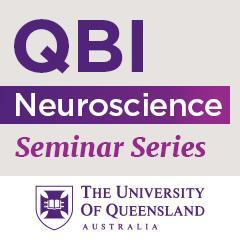Dr Michael Lazarou, VIC : "Culling Bad Mitochondria: The Molecular Mechanisms of PINK1/Parkin mitophagy"

Speaker:
Dr Michael Lazarou
Monash Biomedicine Discovery Institute, Monash University VIC
Title: "Culling Bad Mitochondria: The Molecular Mechanisms of PINK1/Parkin mitophagy"
Abstract: Mitochondrial dysfunction is a major contributor to the pathogenesis of Parkinson’s disease. PINK1 and Parkin are proteins mutated in familial Parkinson’s disease, which function to maintain mitochondrial health by culling damaged mitochondria through a selective form of autophagy termed mitophagy. Removal of damaged mitochondria maintains cellular and organismal health by maintaining mitochondrial energy supply, preventing oxidative stress, and by preventing the release of mitochondrial factors that cause cell death and inflammation. PINK1 and Parkin drive mitophagy by selectively tagging damaged mitochondria to trigger their encapsulation by a double membrane structure called an autophagosome. Autophagosomes deliver damaged mitochondria to lysosomes where they are degraded. Despite the importance of PINK1/Parkin mitophagy, little is known about how autophagosomes are built around damaged mitochondria and how autophagy-related (Atg) proteins function during mitophagy. This presentation will focus on the mechanisms behind how damaged mitochondria are identified by PINK1 and Parkin, and the downstream events that govern autophagosome formation.
About Neuroscience Seminars
Neuroscience seminars at the QBI play a major role in the advancement of neuroscience in the Asia-Pacific region. The primary goal of these seminars is to promote excellence in neuroscience through the exchange of ideas, establishing new collaborations and augmenting partnerships already in place.
Seminars in the QBI Auditorium on Level 7 are held on Wednesdays at 12-1pm, which are sometimes simulcast on Zoom (with approval from the speaker). We also occassionally hold seminars from international speakers via Zoom. The days and times of these seminars will vary depending on the time zone of the speaker. Please see each seminar listed below for details.



